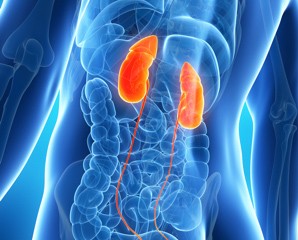Urology, a fascinating field in medicine, delves into the intricate workings of the human urinary system. From the bladder to the kidneys, this specialized branch focuses on diagnosing and treating a myriad of conditions that can affect these vital organs. Whether it be urinary incontinence, kidney stones, or urinary tract infections, urologists play a pivotal role in helping patients maintain optimal urological health.
The importance of urology cannot be understated, as the urinary system is responsible for filtering waste products from the body and maintaining the body’s fluid balance. As we navigate through the hidden world of bladders and beyond, we will uncover the secrets that lie within, shedding light on the innovative techniques and advancements in urological care.
Are you ready to dive deeper into the captivating world of urology? Join us as we embark on a journey to unlock the hidden secrets of this intriguing medical specialty, unraveling the mysteries of bladders and exploring the incredible capabilities of the human urinary system.
Understanding the Basics of Urology
In the vast field of medicine, urology stands as a specialized branch dedicated to the study and treatment of conditions related to the urinary system. This intricate network of organs and structures plays a crucial role in the elimination of waste from our bodies. Understanding the basics of urology helps shed light on the hidden world of bladders and beyond.
The urinary system consists of a series of organs that work in harmony to remove waste products from our bloodstream and maintain proper fluid balance. At the core of this system lies the bladder, a muscular organ responsible for storing urine until it can be safely eliminated. Connected to the bladder are two small tubes known as the ureters, which transport urine from the kidneys. It is within these bean-shaped organs that impurities are filtered out of the blood, a process essential to the body’s overall function.
Many different conditions can affect the urinary system, ranging from relatively minor issues to more complex health concerns. Common ailments treated by urologists include urinary tract infections, kidney stones, and incontinence. Urology also encompasses the diagnosis and treatment of prostate and bladder cancers, as well as addressing reproductive health problems in men and women.
By delving into the realm of urology, we gain valuable insights into the functioning of our bodies and the intricate interplay between various organs and systems. With this knowledge, we can better understand the importance of maintaining urinary health and seek timely medical intervention when necessary. Through ongoing research and advancements in technology, urologists unlock the secrets of this hidden world, offering hope and improved quality of life for countless individuals.
Common Urological Conditions
-
Urinary Tract Infections:
Urinary tract infections, commonly known as UTIs, are one of the most prevalent urological conditions. UTIs occur when bacteria enter the urinary tract, leading to symptoms such as frequent urge to urinate, pain or burning sensation during urination, cloudy or bloody urine, and lower abdominal discomfort. Women are more prone to UTIs due to their shorter urethra, which allows bacteria to travel more easily to the bladder. Prompt treatment with antibiotics is necessary to prevent complications and recurrent infections. -
Kidney Stones:
Kidney stones are small, hard mineral deposits that form in the kidneys. These stones can cause excruciating pain when they pass through the urinary tract. Common symptoms of kidney stones include severe back or abdominal pain, blood in the urine, frequent urination, and nausea or vomiting. Factors such as dehydration, certain dietary habits, and family history can increase the risk of developing kidney stones. Treatment options range from drinking plenty of fluids to help pass the stone naturally, to more invasive procedures such as lithotripsy or surgical removal. -
Benign Prostatic Hyperplasia:
Benign Prostatic Hyperplasia (BPH) is a non-cancerous condition where the prostate gland enlarges, causing urinary problems in men. As the prostate gland surrounds the urethra, its enlargement can lead to urinary frequency, weak urine flow, difficulty starting or stopping urination, and the need to urinate multiple times at night. BPH is a common age-related condition and is not considered a precursor to prostate cancer. Treatment options for BPH include medications to relax the prostate muscles or shrink the prostate gland, as well as surgical procedures to remove excess prostate tissue.
Advancements in Urological Treatments
Urology, the branch of medicine that focuses on the urinary system and male reproductive organs, continues to witness significant advancements in the field of urological treatments. These advancements have revolutionized the way certain conditions are diagnosed and managed, offering new hope to patients around the globe.
-
Minimally Invasive Surgeries: One notable advancement in urological treatments is the widespread adoption of minimally invasive surgeries. These procedures, which utilize small incisions and specialized surgical instruments, offer numerous benefits to patients. Compared to traditional open surgeries, minimally invasive techniques result in shorter hospital stays, reduced postoperative pain, quicker recovery times, and improved cosmetic outcomes. Common minimally invasive procedures in urology include laparoscopic and robotic-assisted surgeries, allowing surgeons to effectively treat conditions such as prostate cancer, kidney stones, and urinary incontinence.

Precision Medicine: Another area of advancement in urological treatments is the field of precision medicine. This approach takes into account an individual’s unique genetic and molecular characteristics to tailor treatment plans based on their specific needs. Through the use of advanced diagnostic tests and genomic profiling, urologists can better predict disease progression, determine optimal drug therapies, and identify patients who may benefit from targeted therapies. Precision medicine has particularly transformed the management of urologic cancers like prostate and bladder cancer, leading to improved outcomes and personalized care strategies.
-
Non-Invasive Therapies: With the focus shifting towards patient comfort and quality of life, non-invasive therapies have gained significant momentum in urological treatments. These therapies aim to provide effective treatment options without the need for surgery or invasive procedures. For instance, advancement in the field of extracorporeal shockwave lithotripsy has allowed for the non-surgical removal of kidney stones, reducing the need for invasive interventions. Similarly, novel techniques such as targeted ultrasound and laser therapy are being researched and developed as potential non-invasive alternatives for conditions like benign prostatic hyperplasia (BPH) and urinary tract strictures.
In conclusion, the field of urology has witnessed remarkable advancements in recent years, bringing about positive changes in the diagnosis and treatment of various urological conditions. The utilization of minimally invasive surgeries, precision medicine approaches, and non-invasive therapies have revolutionized patient care, enhancing treatment outcomes, and improving overall quality of life for individuals with urologic disorders. The continuous progress in urological treatments holds promising prospects for the future, offering hope to patients and unlocking new avenues in the management of urological conditions.





